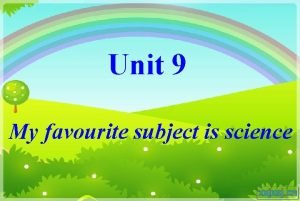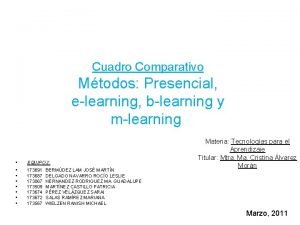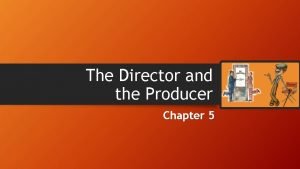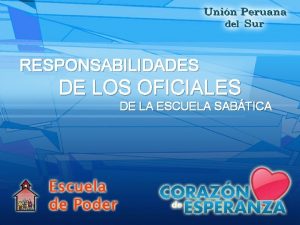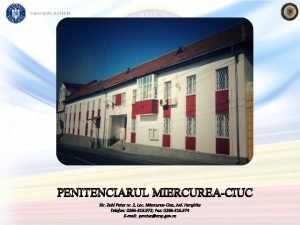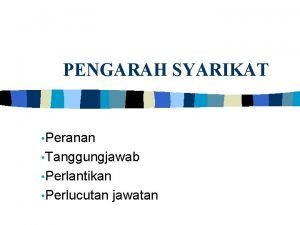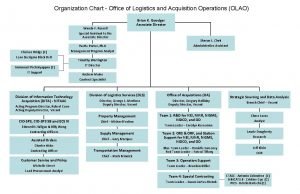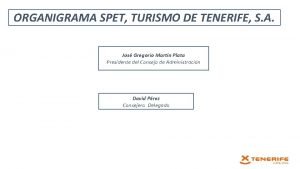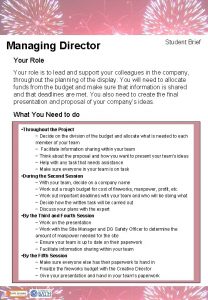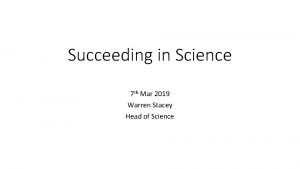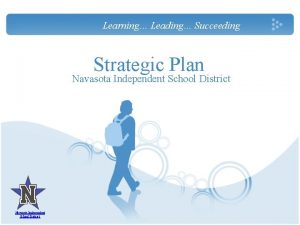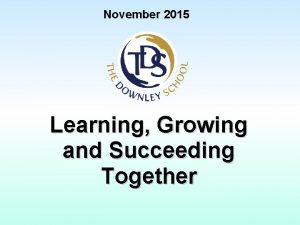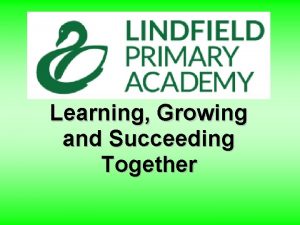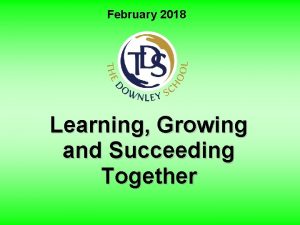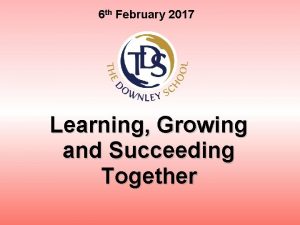Succeeding in Science Dr Ali Director of Learning











- Slides: 11

Succeeding in Science Dr Ali Director of Learning - Science Curiosity – Adaptability – Respect – Determination

Agenda 1) 2) 3) 4) 5) 6) Science course structure Key dates Course content Revision techniques Areas students miss Parent to do list Curiosity – Adaptability – Respect – Determination

AQA GCSE Science Course Structure AQA Combined Science (Trilogy) AQA Separate Science (Triple) Two GCSEs Biology GCSE, Chemistry GCSE & Physics GCSE (3 GCSEs) 6 x 1 hr 15 min papers (2 Biology, 2 Chemistry & 2 Physics) 6 x 1 hr 45 min papers (2 Biology, 2 Chemistry & 2 Physics) Each paper covers specific topics Grade based on total mark from 6 papers Grade based on marks in each subject Higher or Foundation Tier paper available Curiosity – Adaptability – Respect – Determination

Y 11 - Key Dates Bow Internal Exams • Assessment Point 1: 2 nd November -6 th November 2020 (B 1, C 1, P 1) GCSE Summer 2021 Exams (provisional) • Biology Paper 1: 19 th May 2021 • Chemistry Paper 1: 24 th May 2021 • Physics Paper 1: 27 th May 2021 • Assessment Point 2: 5 th January -11 th January 2021 (B 1, C 1, P 1 full paper) • Biology Paper 2: 14 th June 2021 • Chemistry Paper 2: 17 th June 2021 • Physics Paper 2: 22 nd June 2021 • Mock Exam: Starting on 22 nd February 2021 (B 2, C 2, P 2 full paper) Curiosity – Adaptability – Respect – Determination

GCSE Exam Contents Paper 1 Contents: Paper 2 Contents: Biology Chemistry Physics Homeostasis, Nervous system, Hormones & reproduction, Inheritance, variation & evolution, Animal & plant adaptations, ecosystems, pollution & recycling Rates of chemical reactions, crude oil & hydrocarbons, Chromatograp hy, chemical tests, Chemistry of Earth’s atmosphere, Earths resources Forces, Motion, Waves, electromagne tic waves, Magnetism, electromagne tism, Curiosity – Adaptability – Respect – Determination

The exams will measure how students have achieved the following skills: 40% of you exam will need you to demonstrate knowledge and understanding of scientific ideas, scientific techniques and procedures (RECALL, IDENTIFY, STATE, MATCH, SEQUENCE, DESCRIBE…) 40% of you exam will need you to apply knowledge and understanding of scientific ideas, A ppl COMPARE, COMMENT …) scientific enquiry, scientific techniques and procedures unf (APPLY, i c a atio m inv ilia n o to and evaluate, r l 20% of you exam will need you to analyse information ves and ideas coton interpret make judgements, draw conclusions, develop and improveliexperimental procedures t n e a kin xt – nd (ANALYSE, JUSTIFY, EVALUATE, INTERPRET, EXPLAIN…) is h g id easwhich will be ard skills MATHS SKILLS - Students will need to demonstrate key mathematical ! taught throughout the course and also be assessed in the final exam – LEARN THOSE FORMULAS. Don’t get put off by unfamiliar situations! REQUIRED PRACTICALS - These are completed during lessons throughout courseon and will Only 40% of the paper is likelythe to focus be examined in the final exams listed above – examples BE ABLE TO RECALL THE covered EQUIPMENT & THE you may have in lessons. METHOD There will be selection of short and longer answers – MAKE SURE YOU ANSWER EVERY QUESTION!

How to ace your science exam? Step 1 Buy a revision book Read the notes, make some flash cards and try the questions at the back – mark scheme included . Step 2 Activate your Google Classroom account – Watch the videos, make a list of any questions you have and ask your teacher about them. Or. . . http: //freescience lessons. co. uk/ https: //www. youtube. com/watch? v=p 60 r. N 9 JEapg Step 3 Make sure you can log onto you Kerboodle and Educake account – see your teacher if you can’t Step 4 PRACTISE, PRACTISE! Past paper practise is really valuable to prepare for your test/exam

Ready… Recall – flash cards, video clips, reading notes in a book or online Steady… Go… Rehearse – practise questions, revision book questions, download questions from AQA, download from website in checklists REPEAT Rest – take a break, have a drink/snack, 10 minute chat with a friend Remember the 4 R’s!

Parents to do list… 1. Is the revision plan in place & suitable ? 2. Are revision resources & environment available ? 3. Are the revision activities suitable ? 4. Is the revision plan being followed ? 5. Are they revising the right topics for the right papers ? 6. Do they know the Physics equations ? 7. Do they know the required practicals ? 8. Can they demonstrate their knowledge 9. Can they demonstrate they can answer questions 10. Can you join in ? Curiosity – Adaptability – Respect – Determination (CARD)

Areas students miss… Equations: • It is imperative that students know the Physics equations Can they recite them to you ? Required Practicals: • There are between three to five required practicals for each paper • Students need to know how to perform the practicals – including writing a method Can they explain them to you ? Extended Writing: • There at least two, 6 mark questions on each paper • Students can answer them using bullet points Can they state some advantages/disadvangtes for a particular process to you?

Good Luck Y 11 s Believe in yourself, as much as we believe in you all! Dr Ali and Team Science
 What is your favorite subject ?
What is your favorite subject ? Cuadro comparativo e-learning y b-learning
Cuadro comparativo e-learning y b-learning The text-based director, also known as the
The text-based director, also known as the Responsabilidades de un director de escuela
Responsabilidades de un director de escuela Penitenciar miercurea ciuc
Penitenciar miercurea ciuc Tugas pengarah syarikat
Tugas pengarah syarikat Director of operations org chart
Director of operations org chart Procolombia organigrama
Procolombia organigrama Oliver stone
Oliver stone Salaam bombay summary
Salaam bombay summary Directors brief
Directors brief Types of span of control in organization
Types of span of control in organization
